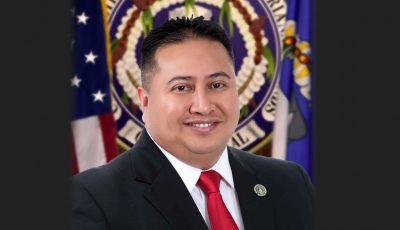‘Bill does not comport with settlement’
Senate passed the legislative initiative in mid-July
A Senate legislative initiative that seeks to bend the rules to allow retirees to be re-employed in certain professions is not compliant with the Settlement Agreement that binds the pensions of retirees, according to the Settlement Fund trustee.
Lawyer Joyce Tang said that Senate Legislative Initiative 20-01, or SLI 20-01, which was offered by Sen. Justo Quitugua (Ind-Saipan), does not comply with the terms of the Settlement Agreement.
SLI 20-01, which unanimously passed the Senate in mid-July, wants to amend the CNMI Constitution to allow retirees to be re-employed as classroom teachers, doctors, nurses, and other medical professionals for an unlimited time without losing their pensions. This is referred to as “double dipping” since they will receive both their pension and salaries from their jobs.
Right now, the CNMI Constitution only allows retirees that are re-employed in these professions to “double dip” for at most two years. After that, they will lose their retirement benefits as they are considered employed.
Tang’s Oct. 31, 2017 comments on the legislative initiative, which was addressed to House Committee on Judicial and Governmental Operations chair Rep. Ivan A. Blanco (R-Saipan), said that SLI 20-01 does not comport, or conform, with the terms of the Settlement Agreement and the Commonwealth government that was entered back in 2013.
Tang said that SLI 20-01 “attempts to change the benefits received by a retiree returning to government service,” in contravention of Public Law 6-41, Section 15, or the “double dipping” statute.
“Any legislation modifying the benefits of a class member is ineffective without the consent of the Settlement Fund and the NMI District Court’s approval,” said Tang.
If ever SLI 20-01 becomes law, it would have no effect under the Settlement Agreement, Tang said.
“The parties of the Settlement Agreement must comply with all laws and terms of the Settlement Agreement. For this reason, SLI 20-01, if passed, would violate the terms of the Settlement Agreement and the order approving the agreement,” said Tang.
According to the initiative, the main purpose of allowing retirees to return to the workforce is to resolve the impending labor shortage in the CNMI once the foreign workforce program, or CW-1 program, expires by the end of 2019.
For SLI 20-01 to take effect, at least three-fourths of both the House of Representatives and the Senate should vote for its passage. Following the initiative’s passage, registered voters of the CNMI would then have to vote on SLI 20-01 at the next regular general elections.
As of publication, the House JGO voted 3-0 in last Tuesday’s committee meeting to set SLI 20-01 aside for further discussion.
Committee chair Blanco, Rep. Blas Jonathan Attao (Ind-Saipan) and minority leader Rep. Edmund Villagomez (Ind-Saipan) voted, while Reps. John Paul Sablan (R-Saipan), Francisco Aguon (R-Saipan), Edwin Aldan (R-Tinian), and Jose Itibus (R-Saipan) were absent from the meeting.


























